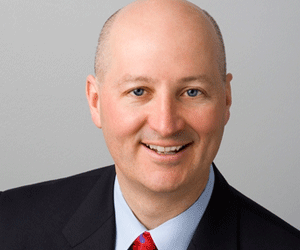 By GRANT SCHULTE , Associated Press
By GRANT SCHULTE , Associated Press
LINCOLN, Neb. (AP) — Nebraska state officials are looking for new ways to help youths who enter the child welfare system, particularly in situations involving family drug use, but challenges remain in rural areas that lack treatment services.
State officials have hired more workers to reduce child welfare caseloads, a common complaint that has led to high employee turnover. They also have taken steps to cut the number of children who are removed from their homes, focusing instead on helping parents.
Gov. Pete Ricketts and state lawmakers approved an additional $35 million this year to boost child welfare services after an uptick in children entering the system because of family drug use. Ricketts also created a state task force to examine the problem.
Keeping children in their homes whenever possible reduces trauma as they remain safe, said Kim Hawekotte, director of the Nebraska Foster Care Office, a state watchdog agency that monitors the child welfare system.
Hawekotte said state officials have taken important steps to address the problem, including the adoption of new, evidence-based assessments to help case managers determine whether children can safely remain with their families.
But she said the state still faces a shortage of service providers, such as therapists and substance abuse counselors, who are available to treat families in rural areas. Some parts of the state are still a 150-mile drive from the nearest provider, she said.
“I think we’ve had improvements,” she said. “Are we there yet? No.”
Many children are entering the system because of drugs, particularly methamphetamine. State officials removed 862 children from their homes in the first three months of this year, according to the Nebraska Department of Health and Human Services.
Of those cases, 406 children were removed because of drug use, and approximately 31 percent of the drug-related cases involved methamphetamine, said Lori Harder, deputy director of the state’s Child and Family Services division.
Harder said department officials met with advocates and judges throughout the state and concluded that high turnover among caseworkers was making it more difficult to place children in a permanent, safe home. Large caseloads were causing burnout among frontline caseworkers, making it more difficult for them to concentrate on individual families, she said.
“They didn’t really have time to sit down with families and learn what was going on,” Harder said.
So state officials used the $35 million in state funding to hire more child welfare case managers and reduce caseloads for those already working. Harder said the state has increased its focus on recruiting, retaining and training caseworkers and coordinating its work with other state agencies in rural, western Nebraska, where services are rarer.
Nebraska had a 19.5 percent turnover rate among caseworkers last year, and 9.7 percent so far this year, according to the department. Harder said managers are offering more flexible hours for caseworkers and meeting with those in remote field offices at least once every three months.
The state’s also trying to do a better job referring people to the services they need when they call the state’s emergency child abuse and neglect hotline, she said. Some of the calls aren’t actual emergencies, but can escalate if workers don’t connect the callers to public assistance, food pantries or other services, Harder said.
“Even if they don’t have an allegation of abuse or neglect, there may still have a need,” she said. “We need to respond to those concerns. We need folks to get to the right services the first time.”
Shifting toward prevention is important so the state can take advantage of funding available under a new federal law, said Sarah Helvey, a staff attorney for the group Nebraska Appleseed.
The law, signed in February, provides federal matching dollars for mental health treatment and other services to try to keep families together. Under the old system, states only got federal dollars when they removed children from their homes.
“We have an opportunity with this law,” Helvey said. “If we don’t move in that direction, we’ll miss out on federal funding.”
 OMAHA, Neb. (AP) — A monthly survey report suggests economic growth is still slowing in nine Midwest and Plains states.
OMAHA, Neb. (AP) — A monthly survey report suggests economic growth is still slowing in nine Midwest and Plains states.


















